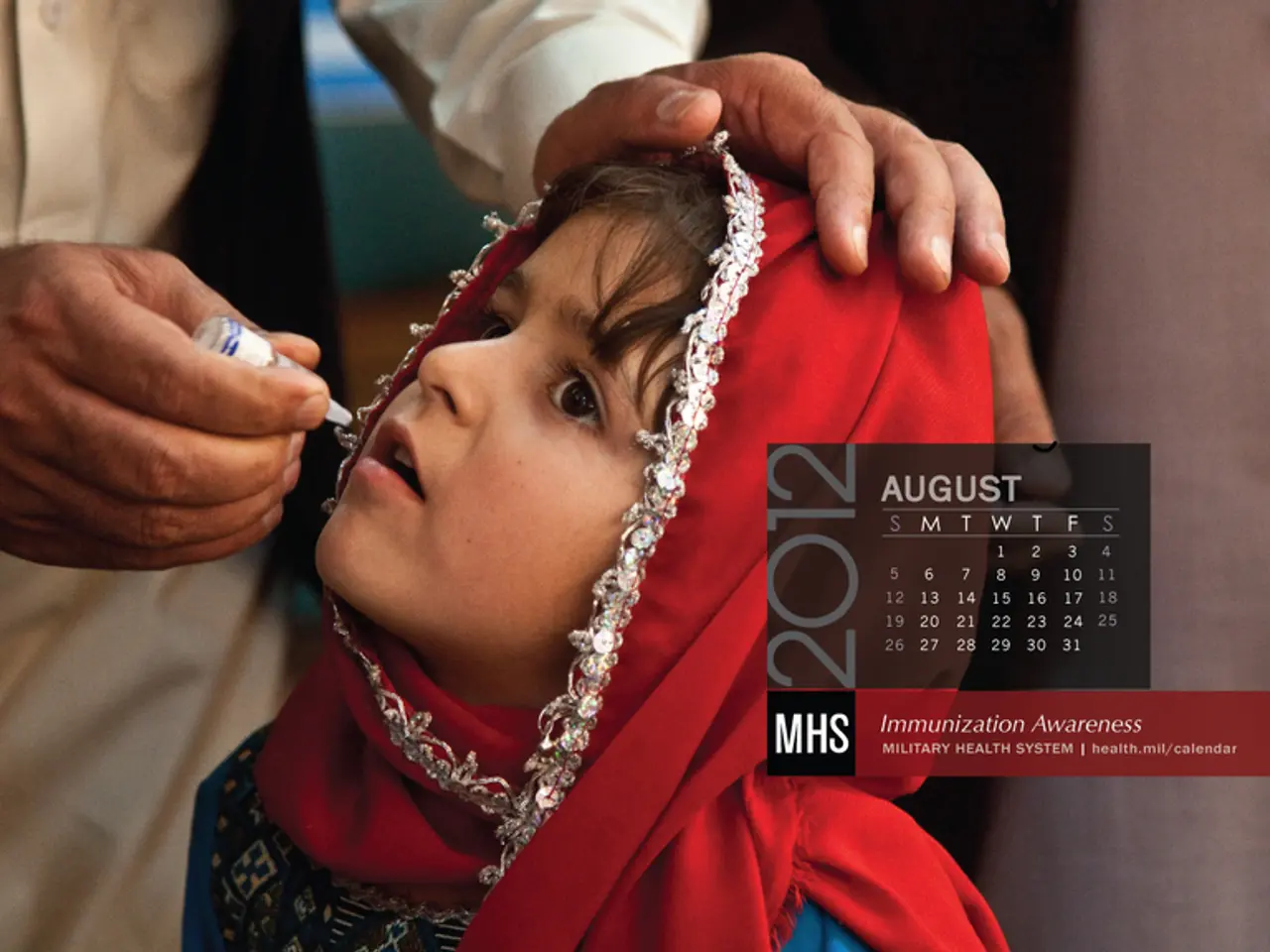Post-Vaccine Discomfort: Understanding Causes and Recommendations
Article Title: Managing Myocarditis and Pericarditis as Rare Side Effects of COVID-19 Vaccination
In recent times, there have been reports of myocarditis and pericarditis, inflammations of the heart muscle and its outer lining respectively, occurring as rare side effects after receiving COVID-19 vaccines. These cases typically manifest within 0–7 days post-vaccination.
The Centers for Disease Control and Prevention (CDC) has acknowledged that receiving mRNA COVID-19 vaccines (Moderna and Pfizer BioNTech) poses a risk of myocarditis or pericarditis, albeit a rare one. This side effect is more common after the second dose and is even rarer after booster shots. Interestingly, this pattern has not been linked to the Janssen (Johnson and Johnson) COVID-19 vaccine.
Other vaccinations that may cause myocarditis and pericarditis include diphtheria, tetanus, pertussis (DPT), meningococcal conjugate, hepatitis A, and even the smallpox vaccine.
Despite these reports, it's essential to note that the benefits of protecting against COVID-19 and related long-term complications, even death, outweigh the potential risk of having a rare adverse reaction to the vaccine.
Treatment for these conditions primarily involves medications and rest. Symptom onset typically occurs within 0–7 days post-vaccination, and treatment usually includes anti-inflammatory drugs, pain relief, and monitoring for cardiac function.
Patients who develop myocarditis or pericarditis after COVID-19 vaccines often experience rapid improvement or resolution of symptoms with medications and rest. Hospitalization may be required in some cases, but most recover quickly. Expert consultation is advised for diagnosis, management, and follow-up to ensure proper care, including the use of cardiac imaging techniques like cardiac magnetic resonance (CMR) to assess myocardial involvement and fibrosis.
Chest pain is a rare side effect of the COVID-19 vaccine secondary to myocarditis or pericarditis. Shortness of breath (dyspnea) and respiratory distress are also symptoms of myopericarditis following a COVID-19 vaccination.
Activity restrictions for people with myocardial effects and sports involvement are necessary. Rarely, some may develop heart failure with myocardial involvement, for which doctors may prescribe standard heart failure treatment.
The medication doctors use to treat myopericarditis caused by the COVID-19 vaccine includes nonsteroidal anti-inflammatory drugs, glucocorticoids, intravenous immune globulin, and colchicine.
In the UK, the Government acknowledges myocarditis or pericarditis as a rare side effect of their Novavax vaccine.
In conclusion, treatment centers on symptom management with anti-inflammatory therapy and rest, careful cardiac evaluation, and monitoring, with most cases resolving without long-term issues. Expert cardiology input is often recommended to guide care and follow-up.
It's important to remember that the CDC still recommends that everyone 6 months and older gets vaccinated with the COVID-19 vaccine, as the benefits far outweigh the potential risks. Common side effects of the vaccine, other than pain, redness, or swelling on the arm (or leg) where the person got their shot, tiredness, headache, chills, fever, and nausea are not typically related to myocarditis or pericarditis.
- Myocarditis and pericarditis, inflammations of the heart muscle and its outer lining respectively, can occur as rare side effects of COVID-19 vaccines, such as the Moderna and Pfizer BioNTech ones.
- Although receiving mRNA COVID-19 vaccines increases the risk of myocarditis or pericarditis, the benefits of protection against COVID-19 and its long-term complications outweigh this potential risk.
- Other vaccinations known to cause myocarditis and pericarditis include diphtheria, tetanus, pertussis (DPT), meningococcal conjugate, hepatitis A, and the smallpox vaccine.
- Treatment for myocarditis and pericarditis typically involves medications, rest, and monitoring for cardiac function, with anti-inflammatory drugs, pain relief, and cardiac imaging techniques like CMR often used.
- Patients who develop myocarditis or pericarditis after COVID-19 vaccines may experience rapid improvement or resolution of symptoms with medications and rest, although hospitalization may be required in some cases.
- Expert consultation, including from cardiologists, is advised for diagnosis, management, and follow-up for individuals who have developed myocarditis or pericarditis after any vaccination, including COVID-19 vaccines.





